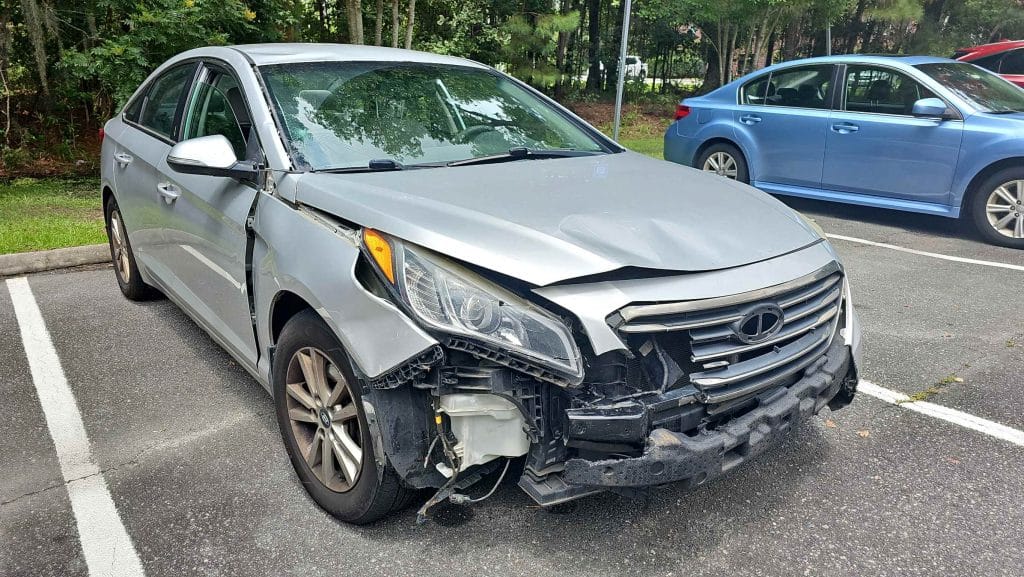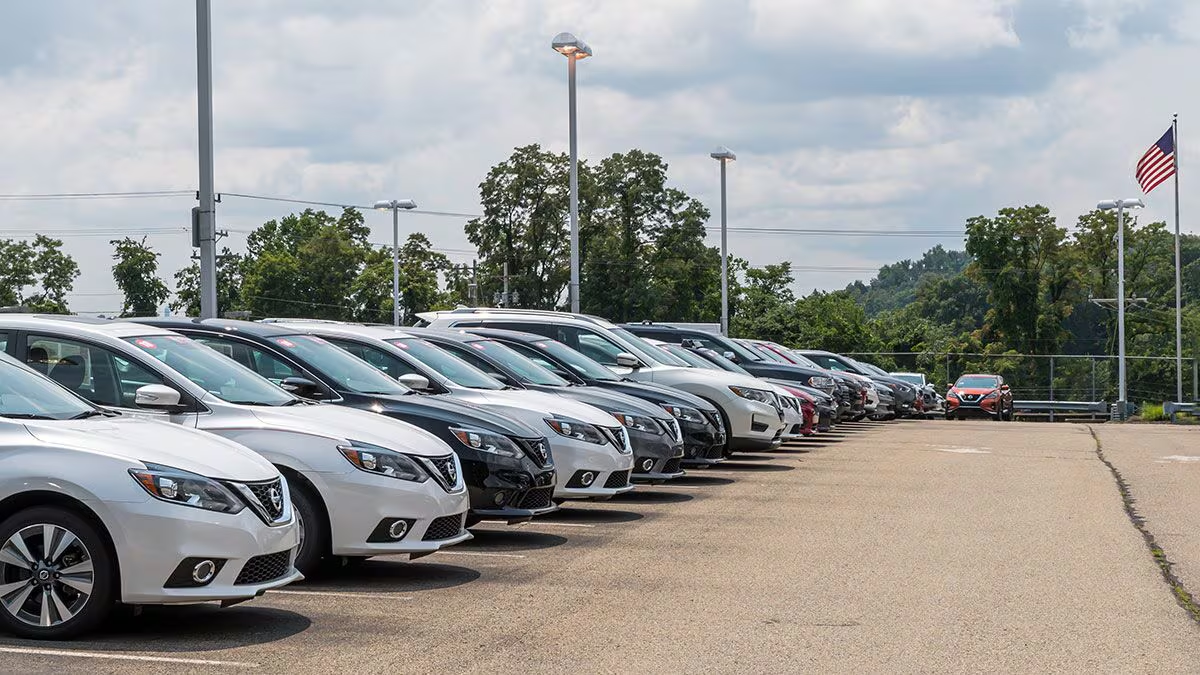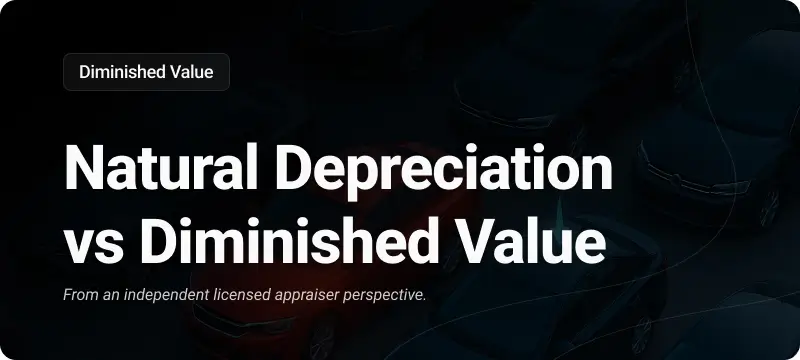Accidents are stressful and often leave you wondering about the state of your vehicle. Determining whether your car is totaled can be a daunting task. As a professional car appraisal company, we have encountered many cases where vehicles are beyond repair.
In this guide, we will explore the signs that indicate your car is totaled after an accident, helping you understand when it might be time to move on.

10 Common Signs Your Car Is Totaled After an Accident (PDF)
What Does “Totaled” Mean?
Before diving into the signs, it’s essential to understand what being “totaled” means. When a car is totaled, the cost of repairing it exceeds its actual cash value (ACV) or the repair cost is deemed too high relative to the car’s worth. Insurance adjusters typically make this decision by evaluating the extent of the damage and comparing it to the car’s value.
Sign 1: Severe Structural Damage
Structural damage affects the core framework of the car, which is crucial for its integrity and safety.
Indicators of Structural Damage
- Bent Frame: A visibly bent or twisted frame indicates severe structural issues.
- Cracked Frame: Cracks in the frame signify significant impact damage.
- Misaligned Panels: Doors, hood, or trunk that do not close properly or are misaligned.
Why It Totals Your Car
Repairing structural damage is often expensive and complex, making it more cost-effective to consider the vehicle a total loss rather than attempting to restore its safety standards.
Sign 2: Airbag Deployment
Airbags are crucial for protecting passengers during a collision. However, their deployment often signifies a serious impact.
Cost of Airbag Replacement
- Expensive Replacement: Replacing deployed airbags can cost several thousand dollars.
- Multiple Deployments: If multiple airbags deploy, the cost multiplies, contributing significantly to repair costs.
Why It Totals Your Car
Given the high cost and complexity of replacing airbags, especially if other significant damage is present, the vehicle is often deemed totaled.
Sign 3: Extensive Front-End Damage
Front-end collisions can damage crucial components like the engine, radiator, and transmission.
Signs of Front-End Damage
- Engine Damage: Significant damage to the engine can be more expensive than the car’s value.
- Radiator Damage: Damaged radiators can lead to overheating.
- Transmission Damage: A damaged transmission is costly to repair or replace.
Why It Totals Your Car
The front end houses many vital and expensive components. Extensive damage in this area usually results in high repair costs that can exceed the car’s value.
Sign 4: Fluid Leaks
Check for leaks of essential fluids like oil, coolant, transmission fluid, and brake fluid after an accident.
Identifying Fluid Leaks
- Oil Leaks: Dark brown or black puddles under your car.
- Coolant Leaks: Bright green, orange, or pink fluid under the car.
- Transmission Fluid Leaks: Red or brown fluid.
- Brake Fluid Leaks: Clear to brownish fluid, often slippery.
Why It Totals Your Car
Fluid leaks can indicate severe damage to critical systems. Repairing these issues can be costly and complex, often leading to a totaled vehicle.
Sign 5: Significant Age and Mileage
Older cars with high mileage are more likely to be totaled after an accident due to their reduced value.
Impact of Age and Mileage
- Depreciation: Older cars depreciate significantly, lowering their ACV.
- Wear and Tear: High mileage indicates more wear and tear, which can make repairs less worthwhile.
Why It Totals Your Car
If an older car with high mileage sustains significant damage, the cost of repairs can easily exceed its value, leading to it being totaled.
Sign 6: Fire or Flood Damage
Fire and flood damage are among the most destructive and difficult to repair.
Identifying Fire Damage
- Burnt Components: Visible charring or melting of parts.
- Smoke Damage: Persistent smoke odor or soot.
Identifying Flood Damage
- Water Stains: Water lines or stains inside the car.
- Electrical Issues: Malfunctioning electronics or rusted connectors.
Why It Totals Your Car
The extensive and often hidden damage caused by fire or flood can be prohibitively expensive to repair, making the car a total loss.
→Read: Why Are Flooded Cars Often Deemed a Total Loss?
Sign 7: Inoperable Engine
An engine that won’t start or run poorly after an accident is a significant concern.
Common Engine Issues
- Non-Starting Engine: Indicates severe mechanical damage.
- Knocking or Ticking Sounds: Signs of internal damage.
- Smoke from the Engine: Could indicate severe issues like a cracked engine block.
Why It Totals Your Car
Engine repairs or replacements are among the most expensive, often exceeding the car’s value in older vehicles.
Sign 8: Obstructed View
Clear visibility is crucial for safe driving. Damage that obstructs your view can make the car unsafe to operate.
Causes of Obstructed View
- Damaged Windshield: Cracks or shattering that impair vision.
- Misaligned Panels: Body damage that blocks windows or mirrors.
Why It Totals Your Car
Repairing or replacing major components that affect visibility can be costly, especially if other significant damage is present.
Sign 9: State’s Total Loss Threshold
Each state has its own threshold for determining when a car is considered totaled. This is usually a percentage of the car’s ACV.
Common Thresholds
- 50% to 70%: Many states use a threshold in this range.
- Total Loss Formula (TLF): Some states use a formula combining repair costs and salvage value to determine total loss.
Why It Totals Your Car
If the estimated repair costs exceed the state’s total loss threshold, the car will be considered a total loss by insurance companies.
Sign 10: Professional Appraisal
A professional appraiser can provide a detailed assessment of the damage and help determine if the car is totaled.
Benefits of a Professional Appraisal
- Accurate Valuation: Ensures a fair assessment of the car’s value.
- Damage Assessment: Identifies all damages, including hidden ones.
- Expert Advice: Provides guidance on whether to repair or replace the car.
Why It Totals Your Car
An appraiser’s detailed report can often uncover extensive damage that wasn’t initially apparent, leading to a total loss determination.
What to Do When Your Car Is Totaled
Steps to Take
- Contact Your Insurance Company: Report the accident and follow their instructions.
- Get a Professional Appraisal: Ensure you get a fair assessment of your car’s damage.
- Understand Your Policy: Review your insurance policy to understand your coverage.
- Negotiate the Settlement: Work with your insurance adjuster to get a fair payout.
- Explore Replacement Options: Consider your options for replacing your totaled vehicle.
Legal Considerations
- State Laws: Be aware of your state’s laws regarding totaled vehicles and insurance settlements.
- Title Transfer: Understand the process for transferring the title of a totaled car.
Conclusion
Understanding the signs that indicate your car is totaled can save you time, money, and stress after an accident. By recognizing these indicators and working with professionals, you can make informed decisions about whether to repair or replace your vehicle.
Remember, safety and financial sense should guide your decision-making process. If you suspect your car is totaled, seek a professional appraisal to ensure you’re making the best choice for your situation.



